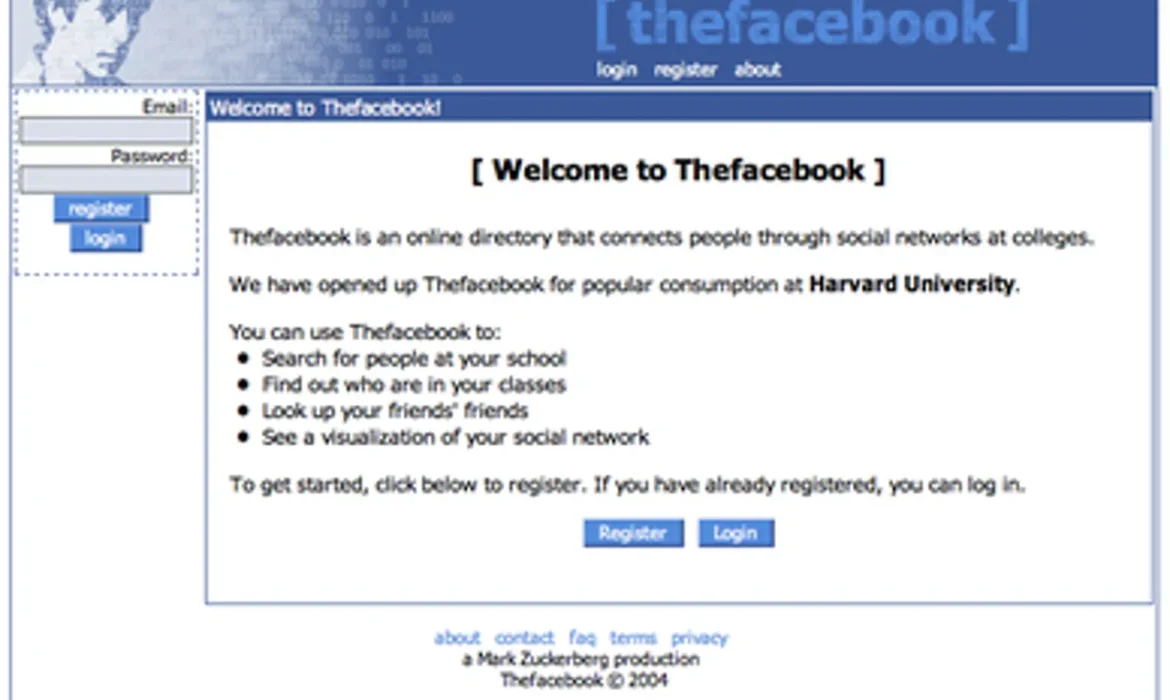28 December 2022
Disruption and innovation are always perceived as distant concepts. When considering the future, It’s important to remember the influence that relatively recent technologies have had on our lives while we deal with new ones that are coming at us like a speed train. Innovations such as Artificial Intelligence, Virtual Reality, Blockchain, CRISPR, and Quantum Computing are all nascent, exciting, and potentially dominating technologies. It is very likely that these emerging technologies, and others that may not even exist yet, will have a significant impact on how we live in the future.
The way we live and interact with the world has changed significantly over the past 20 years as a result of the quick advancement of technology. As we come to the end of 2022, this blog pays respect to the technology that wasn’t around 20 years ago, yet has significantly changed the way we interact, communicate, and live today.
Social Media hadn’t really started
Facebook 2004: If you had a myspace account, you were one of the first people to appreciate social media, but most technology historians would argue that social media really started on 4 February 2004, when Harvard student Mark Zuckerberg launched “The Facebook” – A social media network built to connect Harvard students. By the next day, over a thousand people had registered and by 2020 it was making 85.96 billion USD in revenue with over 2.7 billion monthly active users.
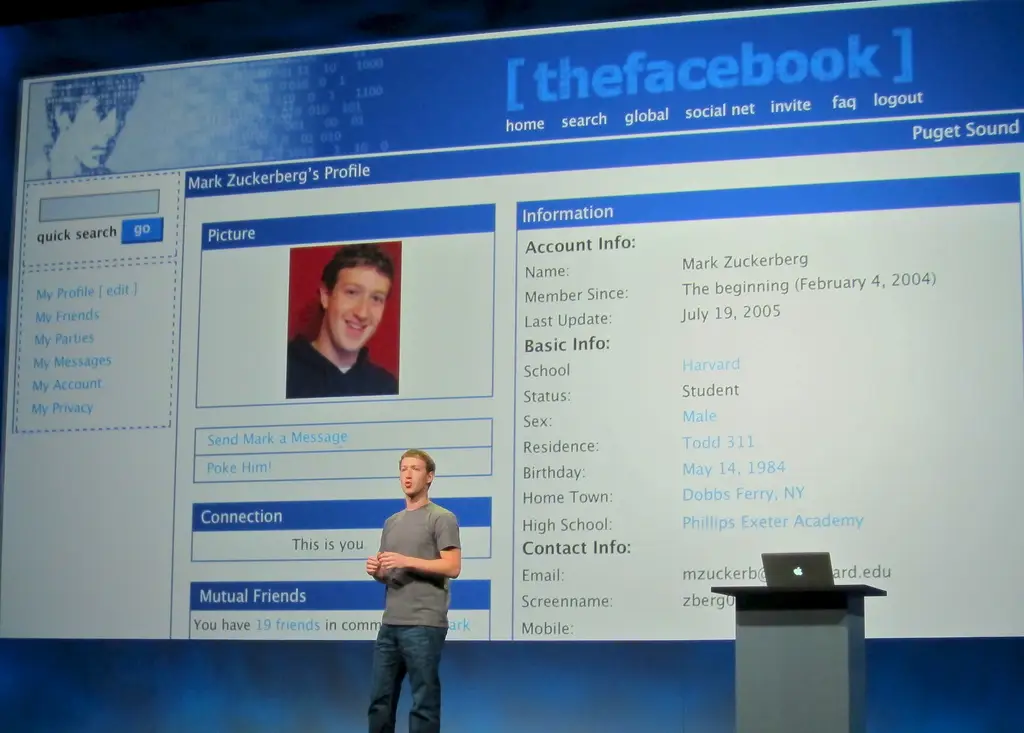
The original facebook looked a little different from today
Youtube 2005: Having formerly met at PayPal, Chad Hurley, Steve Chen and Jawed Karim worked together to create what is today the world’s largest video-sharing website, YouTube. Launched in 2005, the first YouTube video to be uploaded online was of Karim at the San Diego Zoo. Today, YouTube has more than a billion users.
Twitter 2006: Twitter was created by Jack Dorsey, Noah Glass, Biz Stone, and Evan Williams in March 2006 and launched in July of that year. A microblogging platform that allows users to create upto 280 character messages known as tweets. In a content-heavy world, it appealed to our shortening attention spans and desire to be brought quickly upto date on the latest issue. In 2022, it was bought by Elon Musk for $44B and is the 7th most visited site in the world. In 2021 it achieved 2.4 billion sessions, with 620 million of these unique. The former US President alone has over 130,500,000 followers.
Other social media giants that were not in our lives 20 years include:
- Linkedin 2002, In December 2002, LinkedIn was founded by Reid Hoffman and 4 other friends and launched the platform in May 2003. LinkedIn is the world’s largest professional network on the internet with more than 875 million members with over 58 million registered companies.
- Reddit 2005, Reddit was founded by University roommates Steve Huffman and Alexis Ohanian, with Aaron Swartz, in 2005. It was a simple online bulletin board where registered users could create individual communities or “subreddits” to share their hobbies and interests. Today Reddit has 52 million daily active users and approximately 430 million users who use it once a month and has resisted the commercial temptations other social media giants enjoy.
- Spotify 2006, was founded in 2006 by by Daniel Ek and Martin Lorentzon in Sweden in response to growing piracy concerns. Initially, Spotify was a free service with advertising, with a $ 15-a-month ad-free subscription. The service addressed piracy and neutralized file-sharing sites like Napster and Pirate Bay. Today Spotify has a market cap of $14.77 Billion with 433 million users worldwide.
- Instagram 2010, Instagram, an image and video-sharing social media platform, was launched on Oct. 6, 2010 by Kevin Systrom and Mike Krieger. The app was originally only available on IOS and reached one million registered users after just two months, and a billion users by 2018. Facebook Inc. purchased Instagram in 2012 for $1 billion in cash plus equity. As the 4th most used social platform in the world, it achieves over 2.9 billion total visits per month.
- Snapchat 2011, was founded in 2011 by Evan Spiegel, Bobby Murphy, and Reggie Brown, originally named “Picaboo” until a Cease and Desist forced them to change it to Snapchat. They famously rejected a 3 Billion offer from Mark Zuckerburg in 2013. Today it is a powerful social media tool with 229 million daily users creating more than 4 billion Snaps per day.
- Tiktok 2016, is the newest social media disrupter to dominate our lives. The app was launched in 2016 by the Chinese technology company ByteDance. It is available if over 150 counties and as of early 2022 had over 1 billion global daily users. Its rapid growth saw TikTok’s visited last year more often than Google.
Today social media has such a significant impact on the way we communicate and interact with each other. We perhaps take for granted the increased connectedness it has created and how it has become an essential tool for brands to engage with their customers and maintain relationships, engage and inform. It has changed the way we consume media, as people are now able to access news and entertainment through platforms like Facebook, Twitter, and Instagram that were not around in 2002.
Instant Messenger is often thought of in the same class as Social Media. While, the first instant messaging service, ICQ, was launched in 1996 it wasn’t until Skye launched in 2003 and Facebook Messenger rolled out in 2011 that it really took off. With the proliferation of smartphones and the rise of social media, IM has become even more widespread, and today there are a wide variety of IM apps available, including WhatsApp, Skype, and Wechat, among others. Over 1.24 Billion people use WeChat alone, which has morphed into an important marketing platform for Chinese businesses and users to engage. IM has greatly contributed to the growth of social media and has changed the way we communicate with each other. It is difficult to think that many of today’s everyday IM platforms didn’t exist 20 years ago.
The Iphone & Android-powered smartphones
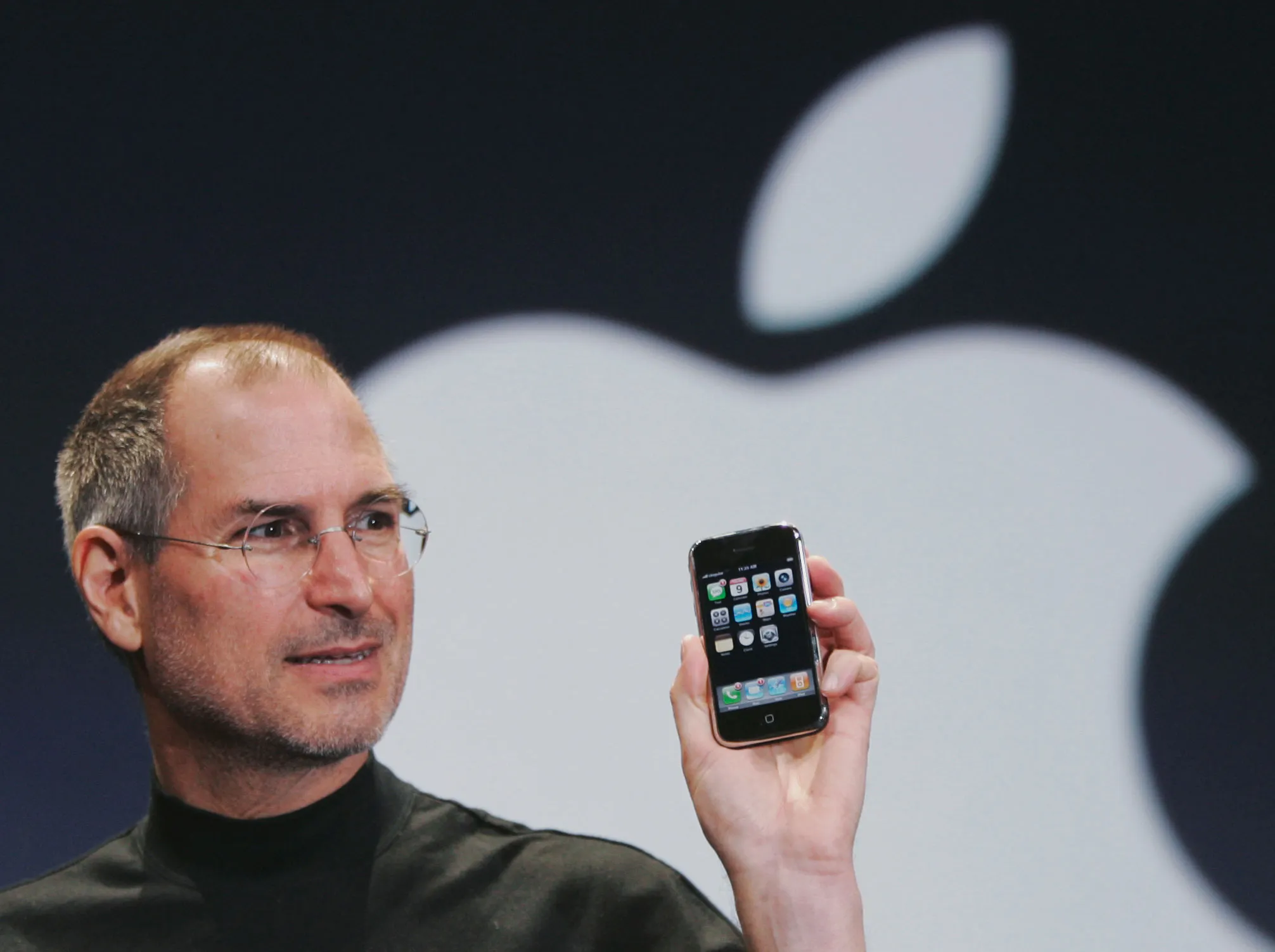
The iPhone was first launched on June 29, 2007 by Steve Jobs at a press event at the Macworld conference in San Francisco. It was the first smartphone designed and marketed by Apple Inc. and it revolutionized the smartphone industry. The iPhone introduced a number of innovative features and technologies, including a multitouch display, a virtual keyboard, and the ability to access the internet and download apps. It quickly became popular around the world and has continued to evolve and improve over the years.
The iPhone was initially available in two storage capacities: 4 GB and 8 GB. It was priced at $499 and $599, respectively, with a two-year contract from AT&T. The device featured a 3.5-inch display, a 2-megapixel camera, and a touch-sensitive screen that could be used for typing, browsing the internet, and playing music and video. It also had GPS, Bluetooth, and Wi-Fi capabilities. Steve Jobs described this revolutionary product as:
“a widescreen iPod with touch controls, a revolutionary mobile phone and a breakthrough internet communications device.”
In 2003, Andy Rubin and three others launched Android Inc., which created the Android operating system, which would revolutionize the way people used their phones. Android was first released in 2008 and it has been improving ever since. According to Statista, as of 2021, there were approximately 3.5 billion active Android devices in use worldwide. This represents a significant portion of the global population, as the total number of people on the planet is around 7.9 billion.
Some of the ways Smartphones have changed our lives:
- Maps: In 2009, Apple and Android phones rolled out their versions of digital maps, meaning we no longer needed chunk GPS systems in our cars, or maps to track around. Turn by Turn technology meant that even the most navigationally challenged person no longer had to worry about getting lost. According to Google, Google Maps is used by over 1 billion people each month. That’s a lot of people not getting lost.
- Payments: In 2011 Google Wallet was launch and in 2014 Apple Pay rolled out. Mobile Pay technology (Near Field Communication) has made it easier and more convenient to pay for things, increased security (Via mobile authentication), changed the way we think about money, and has fundamentally changed consumer purchasing behaviour. According to Statista, the global value of mobile payments transactions was estimated to be approximately $9.9 trillion in 2021.
- High-resolution Cameras: Smartphone cameras have made photo & videography accessible to everyone. The widespread adoption of smartphone cameras has made it easier for anyone to take and share high-quality photos and videos, and this has contributed to the growth of social media such as Tiktok, youtube and the emergence of new forms of art and cultural expression. Smartphone cameras have also become valuable tools for businesses and marketers, and are used in a variety of settings to help promote products and services.
The Sharing Economy and the creation of P2P marketplaces.
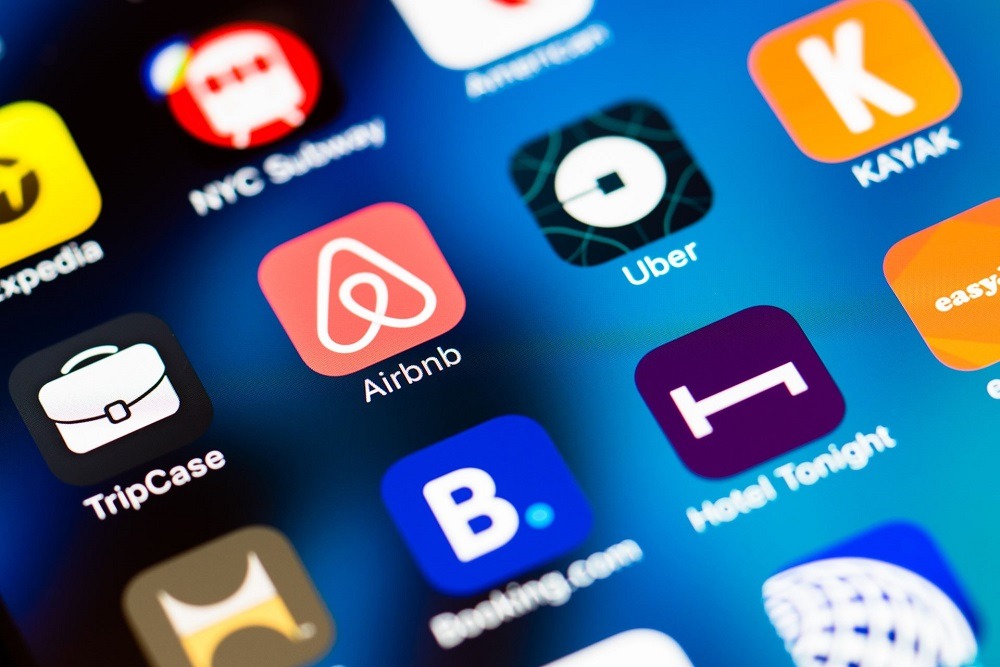
Back in 2002, we caught cabs, booked hotels and used online search or directories such as the yellow pages to find designers or tradies. Since then companies like Uber, AirBNB, Upwork, Alibaba and many more have formed to bring communities of people together to acquire, provide, or share access to goods and services facilitated by a community-based online platform.
The sharing economy’s impact on traditional industries is undisputed, particularly those such as the hotel and transportation industries. Uber and AirBNB has changed the way these industries operate, has created great competition, more access to services and has had a wider impact on the economy.
P2P marketplaces has also changed the way we think about work. P2P marketplaces have made it easier for individuals to earn money by offering their skills or resources to others. Brands like freelancer.com, fiverr.com allows you to access all sorts of specialist skills and services, where you can receive multiple bids for work. It creates greater choice for service and competition and allows the buy to get the best person for a job at the best price.
P2P platforms that did no exist 20 years ago, but have changes how we live include:
- Etsy, 2005
- Airbnb, 2008
- Uber, 2009
- Kickstarter, 2009
- Gofundme, 2010
- Lyft, 2012
- Upwork, 2013
- Facebook Marketplace, 2016
Electric Vehicles and renewable energy innovation
20 Years ago, the thought of an electric car was fantastical. Tesla, Inc. which was founded in 2003 by a group of entrepreneurs, including Elon Musk, Martin Eberhard, Marc Tarpenning, and JB Straubel, changed that.
The company was initially focused on developing electric vehicles, but has since expanded its operations to include energy storage systems and solar panel manufacturing. Tesla’s first car, the Tesla Roadster, was introduced in 2008 and was followed by several other electric vehicles, including the Model S, Model X, and Model 3. Today, Tesla is a well-known and respected company in the automotive and energy industries, and it continues to innovate and push the boundaries of what is possible with electric transportation and renewable energy.
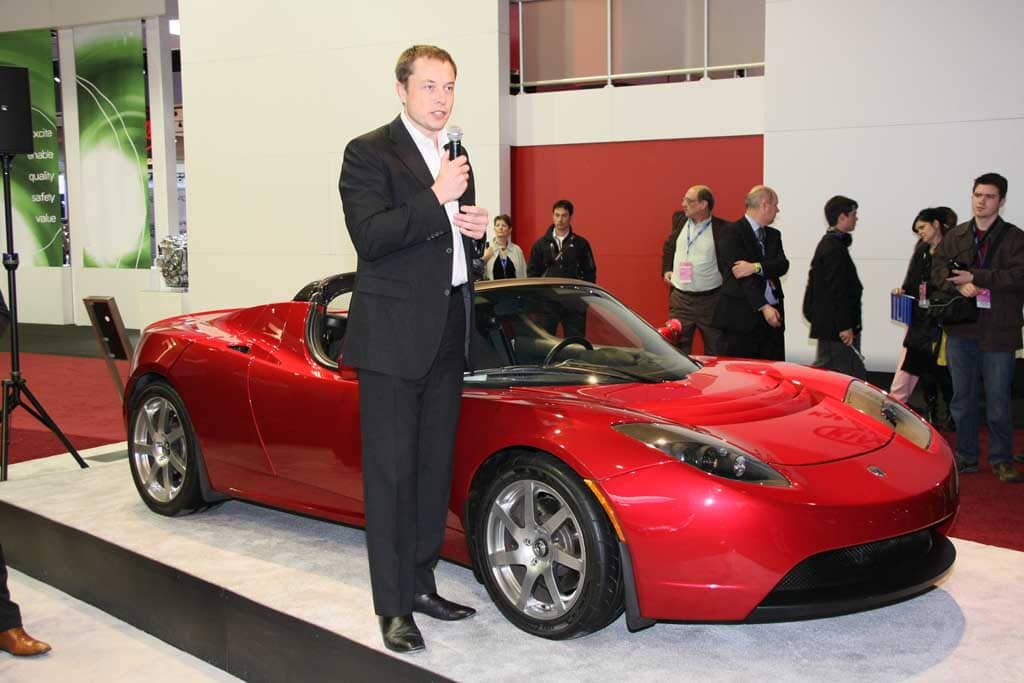
Elon Musk promoting the first Tesla model launched, the Roadster
Tesla has not only led the way in developing renewable energy technology, but their success has also helped to shift public perception about the feasibility and benefits of electric vehicles and renewable energy. This has had a major impact and influence on policy decisions that has led to to the development of charging infrastructure around the world and the adoption of clean energy goals.
Bitcoin and cryptocurrency
Bitcoin, a decentralized digital currency that was created in 2009 by an unknown individual or group of individuals using the pseudonym Satoshi Nakamoto. The first bitcoin was mined on January 3, 2009, and the bitcoin network officially went live on January 9, 2009, when the first block of the bitcoin blockchain (also known as the “genesis block”) was mined.
Since its launch, bitcoin has gained a significant following and has become one of the most well-known and widely used cryptocurrencies. It has also inspired the development of many other cryptocurrencies and has helped to popularise the use of blockchain technology. Despite some ups and downs in its value over the years, bitcoin remains a significant player in the world of digital currencies and continues to be used for a variety of purposes, including as a means of exchange, a store of value, and a way to transfer money across borders.
Some might argue that bitcoin has not had an impact on our day-to-day lives, other than our bank balances since its fall in value, but it was the genesis for the creation of an entire blockchain industry that reaches beyond just cryptocurrency and are creating technologies that touch supply chain management, digital security,, tech, finance, law and order and many other sectors.
Looking Forward the future is both exciting and scary
There are a number of exciting new technologies that have the potential to change our lives in the coming years. Quantum computers, for example, are a type of computer that uses quantum-mechanical phenomena to perform calculations and have the potential to perform certain types of calculations much faster than traditional computers. Artificial Intelligence (AI) has been developed for a while now, but organizations such as Open AI is racing to launch their first learned narrative generators. Basically, you ask questions, and the tool will dig through its archives to provide you with the best response it can. Kind of like Google, but with fewer adds and more human like responses. Augmented reality (AR) and virtual reality (VR) technologies have the potential to change the way we experience and interact with the world, while 5G networks are the next generation of wireless networks that could provide faster and more reliable internet connectivity. The Internet of Things (IoT) or the network of connected devices that are able to communicate with each other and exchange data has the potential to change the way we interact with and control our environment and biological technologies such as CRISPR could radically innovate how we heal and treat historically incurable diseases.
These are just a few examples of exciting new technologies that have the potential to change our lives in the coming years. As technology continues to advance, it is likely that we will see even more innovations that have the potential to transform the way we live and work. While these technologies offer many benefits, there are also potential risks and moral issues that will need to be worked through before they are safe to use a mass consumer level.
About brandsec
brandsec is a corporate domain name management and brand protection company that looks after many of Australia, New Zealand and Asia’s top publicly listed brands. We provide monitoring and enforcement services, DNS, SSL Management, domain name brokerage and dispute management and brand security consultation services.

